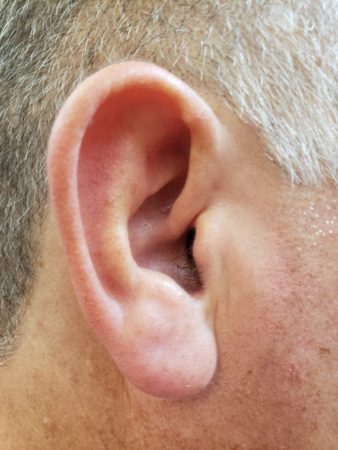If it often said, the best gift we can give is our time. The gift we bring is our presence. When we are truly present for another, listening fully, we give the gift that really matters in our attention-starved world.

Instead of suffering neck pain staring at our smartphones and seeking virtual connections, we can embrace multiple opportunities to connect in real life. The exciting part is while giving another our attention, by really listening, we may venture along an unexpected path. We may discover something new.
But it’s not that easy to listen well. In our digital/virtual/and now, socially distanced COVID-19 world, we have lost the art of listening.
Last month, Toastmasters International (TI), an organization dedicated to helping people develop their communication and leadership skills, hosted their annual convention online. Each year, since 1959, TI honors an individual distinguished in the fields of communication and leadership with its Golden Gavel Award. This year’s honoree is Scotland-based, Julian Treasure, who is a five-time TED speaker with over 100 million views.
Julian Treasure offers us ways to listen better with his speech, The Secrets of Listening.
Highlights of his presentation (video included below) include the following:
Speaking and listening within context, which affects our happiness, effectiveness, and well-being.
He talks about the four foundations of speaking expressed as HAIL.
He then urges us to be aware of how sounds affect us. If we perceive something as noise, it will affect our stress hormones, raise blood pressure, increase heart risk, stress, anger, fatigue, illness, and distraction. Whereas, what we consider pleasing sounds, such as the sound of a stream, a gentle rain or wind, and birds chirping, will produce happy hormones, reduce blood pressure, increase slgA (antibodies for immune defense), pleasure, contentedness, energy, wellbeing, and focus.
View his 22-minute speech (begins at 2:17) and learn about –
- ISE – Irrelevant Sound Effects,
- biophilic sounds,
- two bad habits of listening,
- and the four Cs of effective listening – Conscious, Committed, Compassion, and Curious.
Our quality of listening changes over time; yet, it underpins our ability to learn, lead, persuade, relate, and understand.
Listen to one of Mr. Treasurer’s TED talks, entitled, Five Ways to Listen Better.









Brenda. My admiration for you. I send you a hug with great affection. Your friend mara.
Thank you, María. 🙂